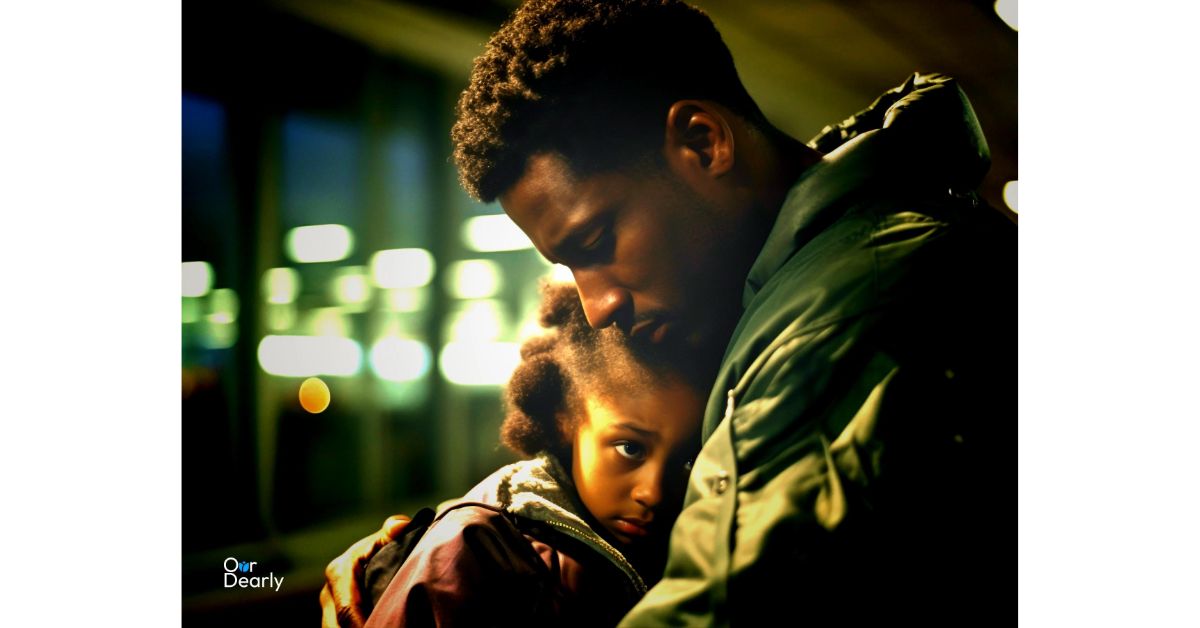How to Support Grieving Children; Practical tips for parents and guardians
Are you wondering how to support a child who has just lost someone dear to them? Maybe it's your child, niece, nephew, or family friend. Seeing a young one struggle with loss, grief, uncertainty, and sadness can break our hearts. But don't worry. There are several ways to help them. In Africa, an adage goes like this, "It takes a village to raise a child." This saying is even more true when a child is grieving. Whether it's the loss of a parent, grandparent, sibling, or close friend, they need special care and understanding. This post will give you practical tips on how to support grieving children. We'll talk about how to recognize signs of grief in children, ways to talk to children about death and loss, activities that can help children express their feelings, and when to seek professional help. Remember, every child grieves differently. What works for one may not work for another. But with patience, love, and the right approach, you can help your child navigate their grief and find hope for the future. Let's jump in and learn how to be there for our little ones when they need us most.
How do you recognize grief in children?
Grief in children is easy to spot, although their expression may be different from that of adults. One clear sign is changes in behavior. If a once playful child becomes withdrawn or avoids activities, it might indicate they are struggling with loss. Sometimes, they may act out more often, showing frustration or anger that seems out of place. Look for changes in sleep patterns. Nightmares and difficulty sleeping can signal deep emotional pain.

Physical symptoms can also pop up when a child is grieving. Complaints like stomach aches or headaches without a clear medical cause could be their way of expressing sadness. They may cry more often, eat more or less than before, become extremely tired, and find it difficult to concentrate at school. Additionally, returning to earlier behaviors—such as bedwetting or clinginess—can show that the child feels overwhelmed by emotions they don’t understand.
1. Explain what happened using clear language
Death is a part of life, but understanding it can be difficult, especially for children. When a child loses someone they love, it can feel like the whole world has changed. They may not fully understand what death means or why it happened. Sometimes, they think the person will come back, or they might blame themselves for things that happened before the loss. This confusion is normal. Parents and guardians must help them through this time with kindness and patience. Help your child to understand the concept of death. Explain what happened and who's late using words like ‘died’ or ‘dead’ even if it's hard. Avoid using expressions like ‘gone to sleep’ or ‘passed on’, as these can be confusing.
2. Ask them if they have questions
After discussing the feelings around loss, tell your child to share their questions. Children often process grief differently than adults, and their queries can reveal what they truly need help understanding. When you ask them if they have questions, it shows you're open to a conversation without judgment. It can make them feel safe expressing their emotions. Sometimes, kids may hesitate to ask about tough topics like death or absence because they're afraid of upsetting you. Letting them know it's okay to speak freely about what’s on their mind creates a space for healing discussions. Encourage follow-up questions. If they mention something unsettling they've heard from friends or the media, clarify things together. Such discussions help them understand their feelings better and strengthen bonds during this difficult time.
3. Encourage them to talk and express their feelings
When children are grieving, they may feel the loss more strongly and become confused. One of the best ways to support grieving children is to encourage them to talk about their feelings. Let them know that it's okay to express what they feel inside. You might ask simple questions like, “How do you feel about what happened?” or “Can you share your favorite memory with them?” These small openings can help a child open up, letting them know they’re not alone in their sorrow. Sometimes, kids may prefer to draw or write instead of speaking. If they seem shy or unsure about sharing verbally, provide art supplies or a journal for them to express themselves creatively. It allows them to communicate their emotions in a way that feels comfortable for them. Remember, even silence is part of the process; just being there with patience and understanding shows your support and love. Do not rush them into talking if they aren’t ready—grieving takes time. Instead, create an environment where they feel safe enough to share whenever they're ready. Listen without judgment and validate their feelings by saying things like “It’s okay to cry” or “I understand this hurts.” Your support is crucial as they navigate through their emotions while learning how to process loss in healthy ways.
4. Ensure they move and get fresh air regularly
It’s crucial to help grieving children get moving and breathe fresh air. These simple activities can do wonders for their mood. Encouraging them to step outside, even for a short walk, allows their minds to wander and can ease some of the heaviness they feel inside. The natural environment is a gentle healer, where the sun's rays and soft breeze remind them that life continues beyond their pain. Playtime outdoors can also be fun to engage with them without talking about grief. Activities like soccer, sitting, and playing under the open sky let them express emotions while finding joy again. Sharing these moments shows them they are not alone in their healing journey. You're beside them every step of the way. This approach is essential for their physical health, hope, and resilience during tough times.
5. Gently encourage them to socialize with other people
Helping grieving children to socialize with others can speed up their healing process. Allow them to spend time with friends, family, or even classmates who understand what they’re going through, even for a few minutes. These relationships can provide a safe space to express their feelings and share memories of the person they've lost. These interactions must feel comfortable. Organizing activities like group video calls, games, or movie nights can help lighten the mood and take their mind off things for a while. In addition, consider involving them in community events or support groups specifically designed for young people dealing with grief. Here, they will meet others facing similar challenges and realize they are not alone in their feelings. Finding common ground with peers gives them a sense of belonging and connection. It's vital during these challenging times. By gently encouraging these social opportunities, you help your child build resilience while creating lasting friendships that support emotional growth amidst their sorrow.
6. Initiate school support during grief
When a child is grieving, the school can be a crucial ally in their healing journey. You can help your kid by informing teachers and school counselors about their loss. It allows them to provide understanding and extra care during class or activities. Some children might find it hard to concentrate or feel overwhelmed with emotions. Knowing that adults at school are aware of their situation helps create a safe space for them. Encouraging supportive friendships is another vital aspect you should not overlook. Friends play an essential role in a grieving child’s life, providing comfort and companionship during tough times. Together, these steps create an environment where grieving children can begin to heal while still feeling accepted and cared for within their academic community.
7. Talk to a professional
If you have tried everything and your child is still struggling with their grief, don’t hesitate to seek the help of a professional. Sometimes, kids need someone outside the family to share their feelings with. A trained counselor or therapist can create a safe space where they can express themselves freely. This professional support offers listening ears and provides grief counseling for children. It also equips them with coping strategies tailored for kids. We often believe we should handle things within the family, but mental health professionals bring valuable skills that can guide you and your child through this tough time. These experts use methods like art or play therapy that resonate well with young ones. Remember, reaching out for help doesn’t mean you’ve failed as a parent; it shows strength and commitment to giving your child the best support possible during their healing journey. Do not underestimate the power of expert guidance. It could bring light back into your child's life after loss.
Conclusion
Providing emotional support for grieving children is very important for their healing process. By listening to them and allowing them to express their feelings, parents and guardians can help ease their pain. Maintain outdoor routines and involve them in activities that bring joy. Remember that every child grieves differently, so be patient with them. Reach out today and start the conversation with your child about their feelings. It could make all the difference and ensure they feel loved and understood.



